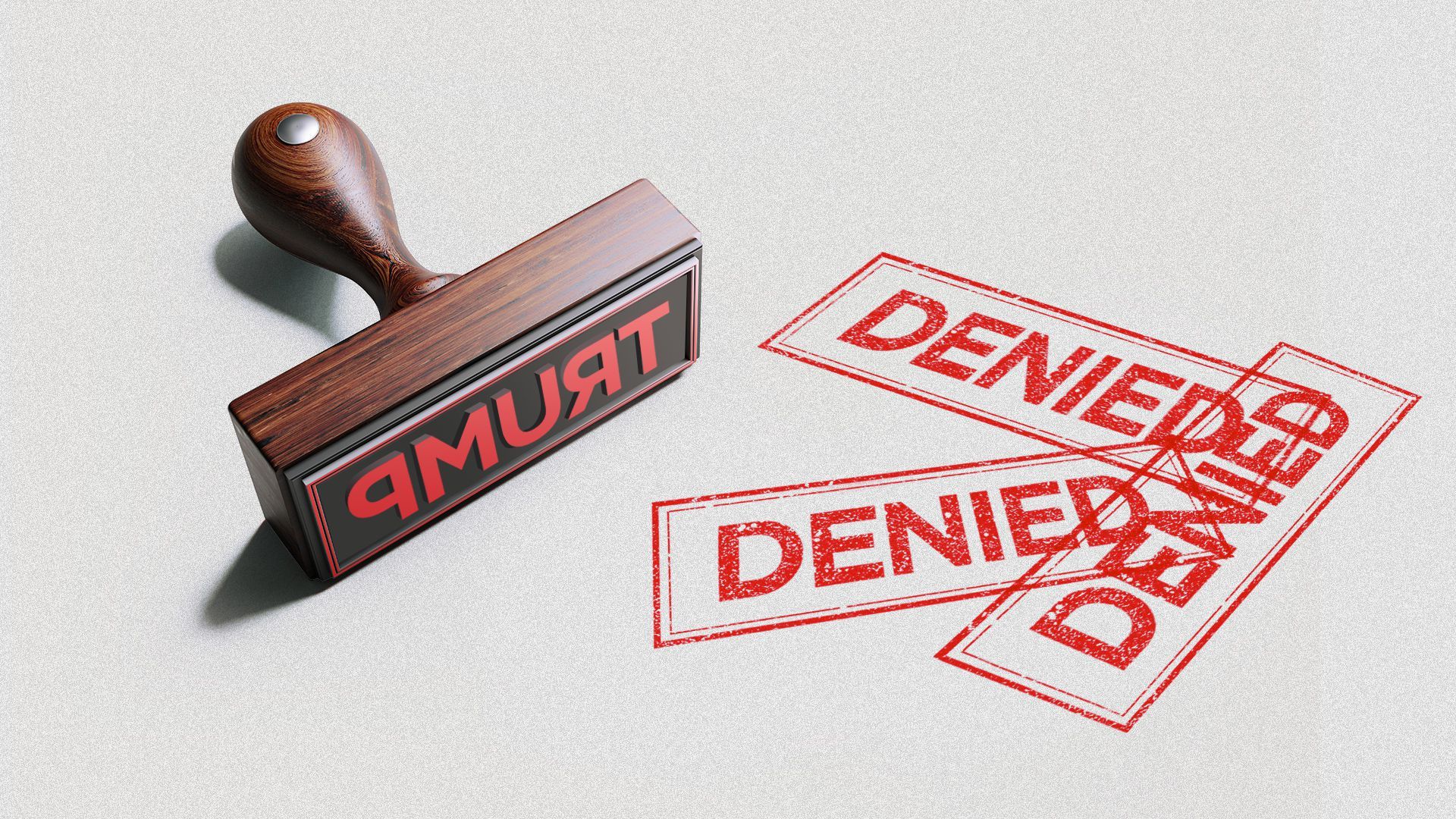Why Trump's visa ban makes Silicon Valley fume
Add Axios as your preferred source to
see more of our stories on Google.

Illustration: Aïda Amer/Axios
As loud as the fight has been between the Trump administration and Big Tech over charges the industry censors conservatives, the White House's move to extend a ban on skilled-worker visas used widely by tech companies hits Silicon Valley closer to home.
The big picture: In a global tech economy where China and other countries threaten to surpass the U.S. in fields like artificial intelligence, 5G networking and automation, American CEOs treasure what they see as Silicon Valley's brain-and-innovation edge, and fear Trump's order will undermine that advantage.
Here's what tech's CEOs are thinking, based on executives' public statements and Axios' reporting.
1. Immigrants built Silicon Valley. U.S. tech has triumphed by drawing top talent from all over the world, giving them a chance to make great products, get rich, and change the world. Shut that door and everyone loses.
- Apple CEO Tim Cook said Tuesday on Twitter: "Like Apple, this nation of immigrants has always found strength in our diversity, and hope in the enduring promise of the American Dream. There is no new prosperity without both. Deeply disappointed by this proclamation."
- Google CEO Sundar Pichai and Microsoft CEO Satya Nadella are both immigrants to the U.S., as is Google co-founder Sergey Brin.
2. Closing the visa door won't help U.S. jobless. The Trump order claims it will free up 500,000 jobs for American workers, but the industries that rely on H-1Bs aren't the ones that have been shedding jobs during the pandemic.
- The order may make for a rousing campaign-rally line, but it will fail to put a dent in the U.S. unemployment rate while making it harder for tech firms to fill specialized positions.
3. Trump's effort to drive a wedge between tech leaders and workers will fail. The H-1B visa has a long history of controversy, with many tech critics and labor activists arguing that firms import foreign engineers to avoid paying higher salaries to American workers.
- That perspective is popular not only among MAGA supporters but also among some progressives, particularly in the Bernie Sanders camp.
- But most of the tech workforce views the issue through the lens of identity and sees hostility to immigrants as part of a larger pattern of inequality and racism.
- Tech employees' opposition to Trump's immigration policy crystallized in the first days of the administration, when crowds of tech employees joined protests.
4. The president's order isn't the end of the world for tech. The proclamation's fine print may limit its impact.
- The new order doesn't affect people already in the country, and some of those in the U.S. on other kinds of visas might be apply to apply for H-1B status.
- The coronavirus pandemic has cut the number of visa applicants for now, anyway.
- Trump's policies might be gone by next January.
5. But Trump's "immigrants not welcome" sign can only hurt U.S. tech in the long run. It makes America look fearful, it cuts U.S. companies off from global talent, and it gives other countries — like Canada — more room to challenge Silicon Valley's lead.
